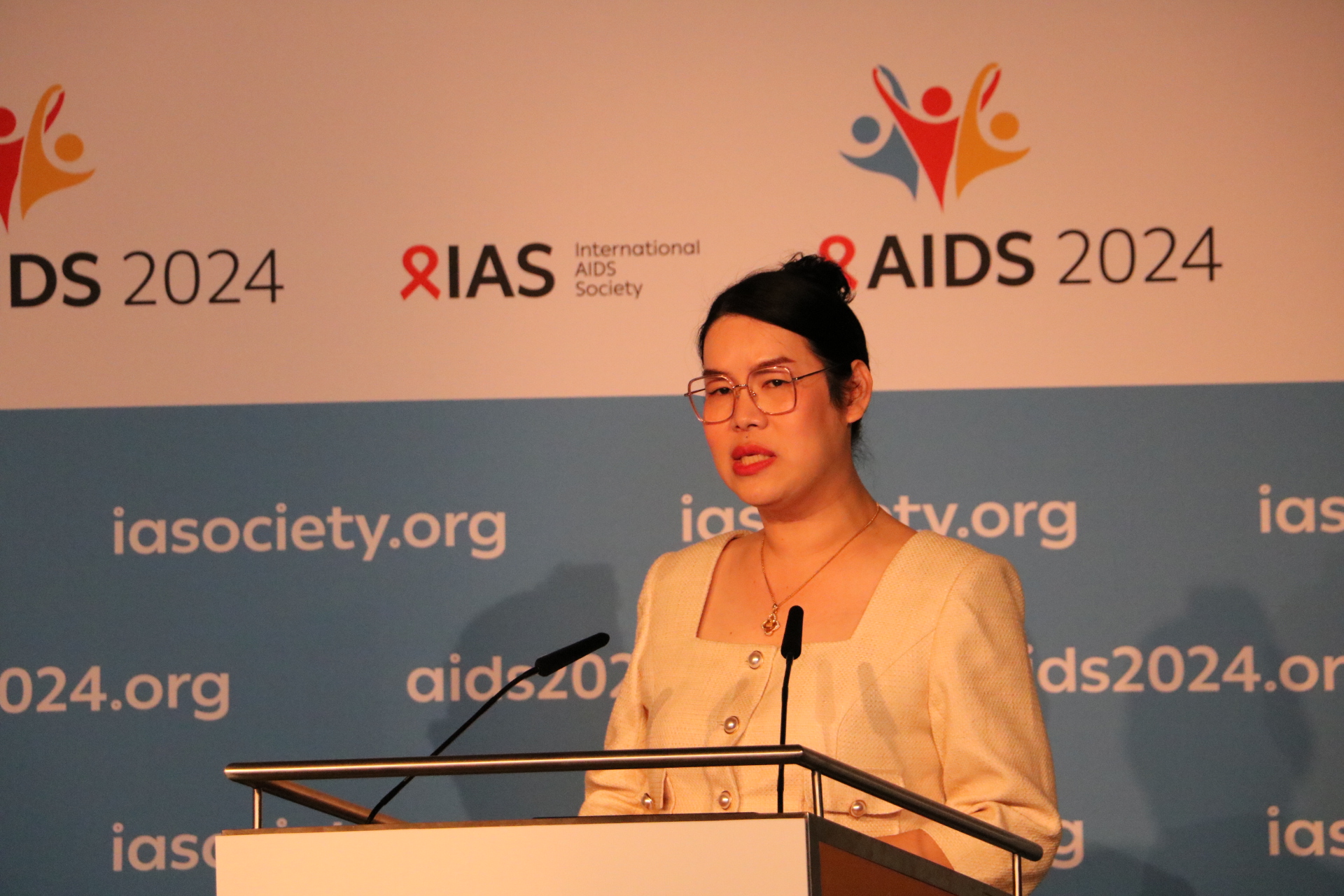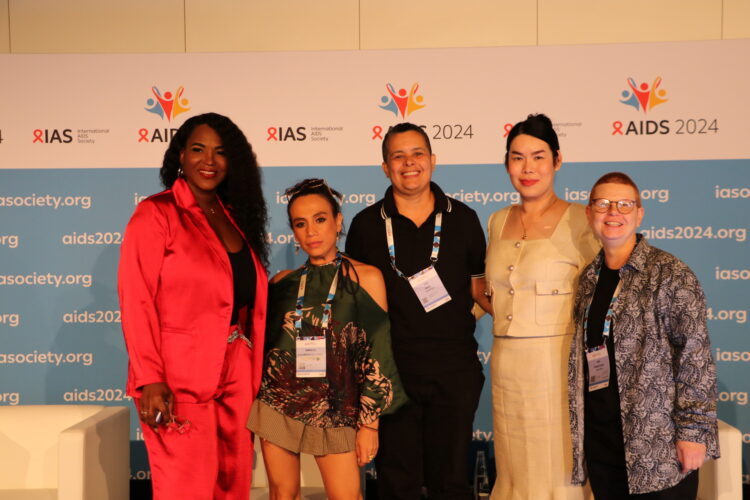26 July – Munich, Germany – Trans people lead a crucial discussion to transform HIV care for trans and gender diverse communities at the AIDS Conference. The health challenges faced by these communities are complex and multifaceted, particularly regarding their heightened susceptibility to HIV.
Anil Padavatan, GATE’s Health Lead, moderated Breaking barriers: Paving the way for enhanced HIV care in trans communities, a notable session presented at the AIDS 2024 Conference and highlighted the profound disconnect between the lack of representation at academic conferences and the critical role communities play in the movement. Anil added that “if we have a very robust HIV response, this is due to community-led organizations” who have been at the forefront, ensuring that treatment and prevention services reach those in need. Even in countries where governments criminalize their existence, communities are documenting human rights violations at significant personal risk.
In the same line of thought, Rena Janamnuaysook, a trans woman and Program Manager at Tangerine Clinic, underscored the mobilization of trans leadership to address the high HIV prevalence among trans women. Data reveals a worrying trend, with HIV rates among trans women standing at 11.5% in 2005, decreasing slightly to 9% by 2014. However, trans men are often excluded from key populations in HIV studies, with a glaring lack of available data. Barriers to accessing HIV services include stigma, discrimination, and practical concerns like the absence of trans-competent healthcare providers and prohibitive service fees, she claims.

The Tangerine Clinic is a good example of “Nothing about us without us,” as their approach includes employing trans individuals in healthcare teams and conducting gender-sensitization and trans-competent care training. This initiative led to significant achievements, such as a 91% HIV testing rate among trans women and the first national trans-specific PrEP campaign informed by research findings from the iFact study.
Similarly worrying was the emphasis given by Dr. Asa Radix, Senior Director of Research and Education at the Callen-Lorde Community Health Center in New York, to the epidemic of violence against trans and gender diverse youth in the United States, with alarming statistics from the HRC’s 2023 report indicating that 1 in 10 violent acts against trans youth results in murder. Asa mentioned that Trans youth face higher rates of transphobia, sexual violence, and bullying, often leading to depression and suicidality. The CDC’s HIV surveillance report highlights that 13-19-year-olds are disproportionately affected, particularly among African American and Latinx communities.
To note that trans leaders are carrying out many of the findings and studies presented, which was something to be proud of, mentioned Amanita Calderon-Cifuentes while pointing the audience’s attention to the fact that the panel was one of the few trans-led at the AIDS conference. She addressed the profound impact of gender-affirming care and legal gender recognition on HIV outcomes for trans individuals globally. Collaborative research, including TGEU’s Trans Rights Map and the Trans Murder Monitoring Project, highlighted the severe risks trans communities face, with 321 reported murders of trans and gender diverse people globally in the last year alone. The data reveal that trans communities are six times more likely to contract HIV, with trans men facing a 6.8 times higher risk and trans women a 6.6 times higher risk compared to the general population. Therefore, these communities must be included in the global HIV response.
A good example of this inclusion was brought up by Toi Washington-Reynolds from the Trans Women of Color Healing Project, highlighting the Global Community Accountability Group models in doing it through long-acting injectable PrEP. Toi also emphasized the need for fair compensation and capacity-building efforts to support gender diverse participation in research and healthcare.
At the end of the session, some overarching question remains: how do we prioritize providing services to ensure no one is left behind? Some speakers answered that as we move forward, it is imperative to empower trans communities through engagement, inclusion as experts, and ensuring their stories are told. This includes addressing unique challenges faced by aging trans individuals, those with neurocognitive impairments, and those without access to online platforms.
Speakers agreed that transforming HIV care for trans and gender diverse communities requires a multi-faceted approach that includes comprehensive, culturally appropriate, and people-centered HIV care. Some have shared that addressing societal barriers, enhancing healthcare accessibility, and prioritizing trans-led initiatives is the way to ensure that trans and gender diverse individuals receive the care and respect they deserve.





